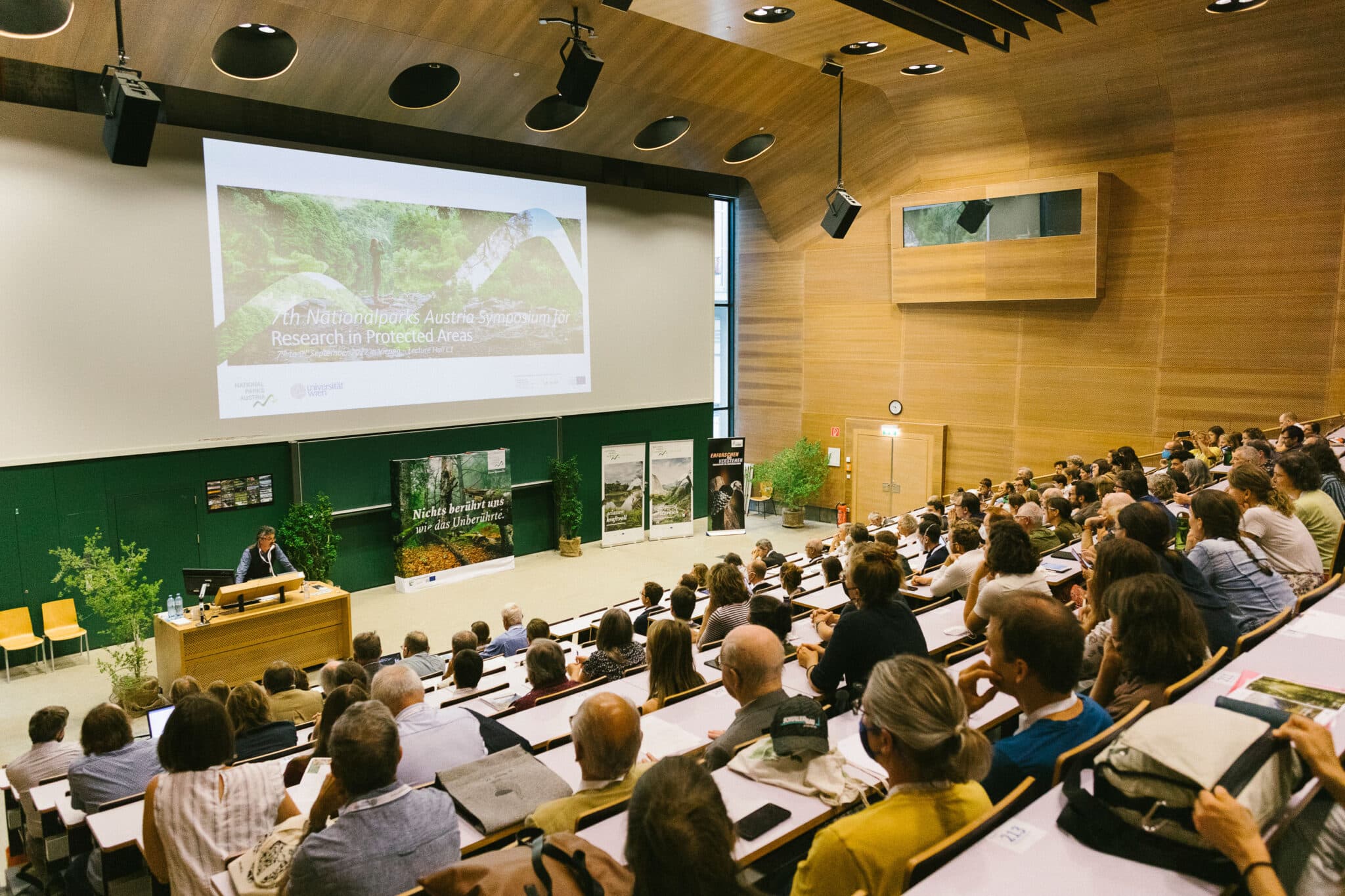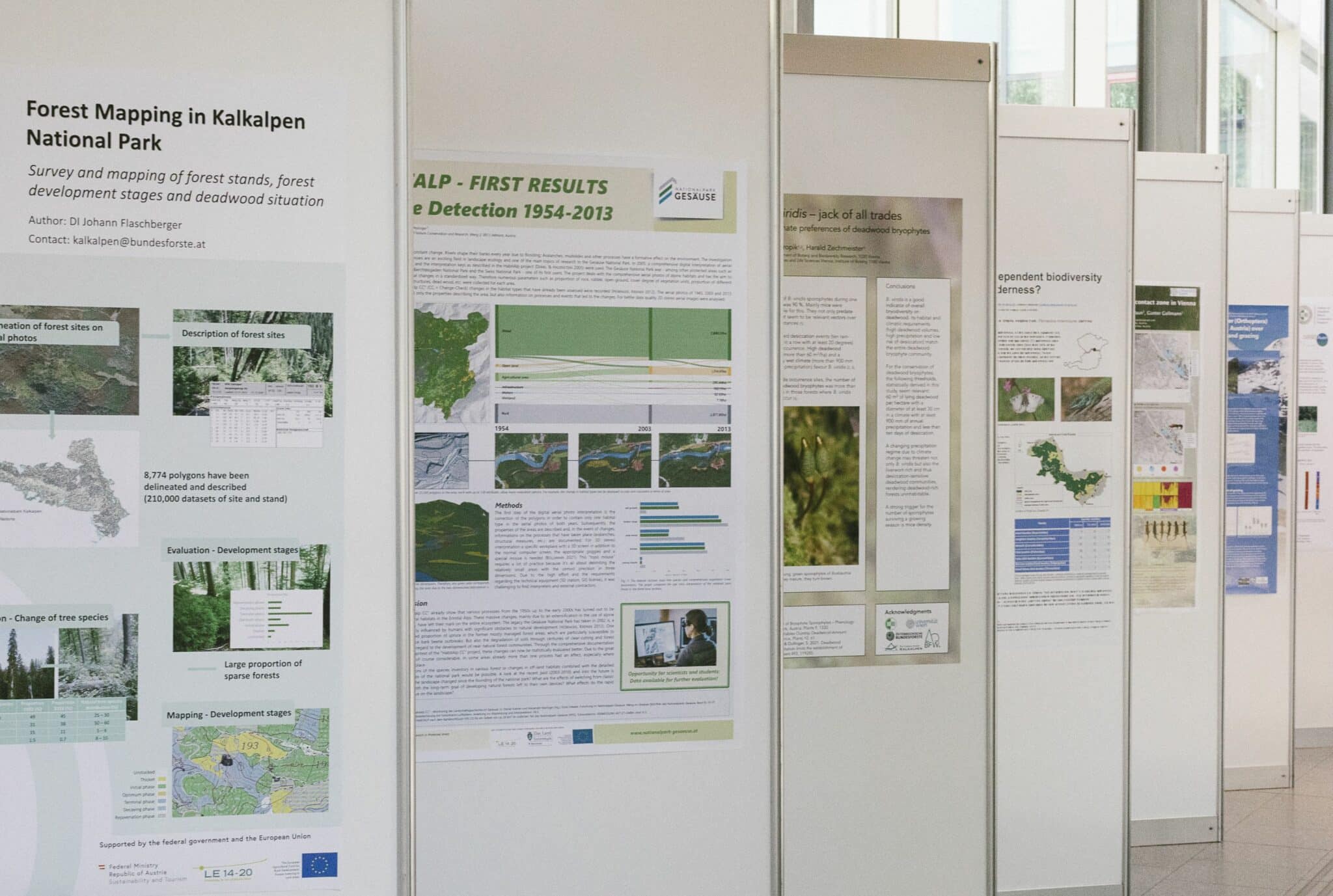


7th National Parks Austria Research Symposium highlights the important role of protected areas in preserving biodiversity
"It is research that makes the visit an experience, in which it adds knowledge of the forces of nature to aesthetic pleasure," said writer Freeman Tilden, who was instrumental in the success of the US National Park Service in the last century.
That is why scientific exchange is so important for international protected areas. From 7 to 9 September, 350 participants came together for the 7th National Parks Austria Research Symposium at the University of Vienna campus. The programme consisted of 106 individual presentations as well as numerous poster contributions and four excursions. The focus was on the role of protected areas in global change, wilderness development and modern biodiversity research. Highly topical issues such as the state of the sodalacks in the Neusiedler See - Seewinkel National Park and its consequences for water birds, were discussed as well as the pioneering work of fungi in the natural balance or the potential of new technologies in research. In order to be able to counter the dramatic decline in biodiversity, an understanding of natural interrelationships is crucial. In the Gesäuse National Park, this is conveyed to visitors at first hand against the impressive mountain backdrop.
Christian Komposch (Ökoteam), Dorian Shire-Peterlechner (BOKU), Tobias Köstl (E.C.O.), Robert Schabetsberger (Uni Salzburg) and Christina Remschak, Magdalena Kaltenbrunner and Alexander Maringer contributed to the Gesäuse research. The networking of the Gesäuse National Park with other research groups, such as Austrian Barcode of Life (ABOL) and Global Observation Research Initiative in Alpine Environments (GLORIA), became visible in many presentations.
"The natural science research in the Gesäuse National Park is very wide-ranging. At this year's research symposium, it became clear how successful this work is and what an important contribution we in the Gesäuse make to our general understanding of nature," says research director Alexander Maringer.
Enquiry notice:
Alexander Maringer, Tel: 0664-82 52 314
Rights notice: Use exclusively for reports in connection with this press release and with citation of the image rights. Any other use of the image material requires the consent of Gesäuse National Park GmbH.



Thumbnails © Aslan Kudrnofsky